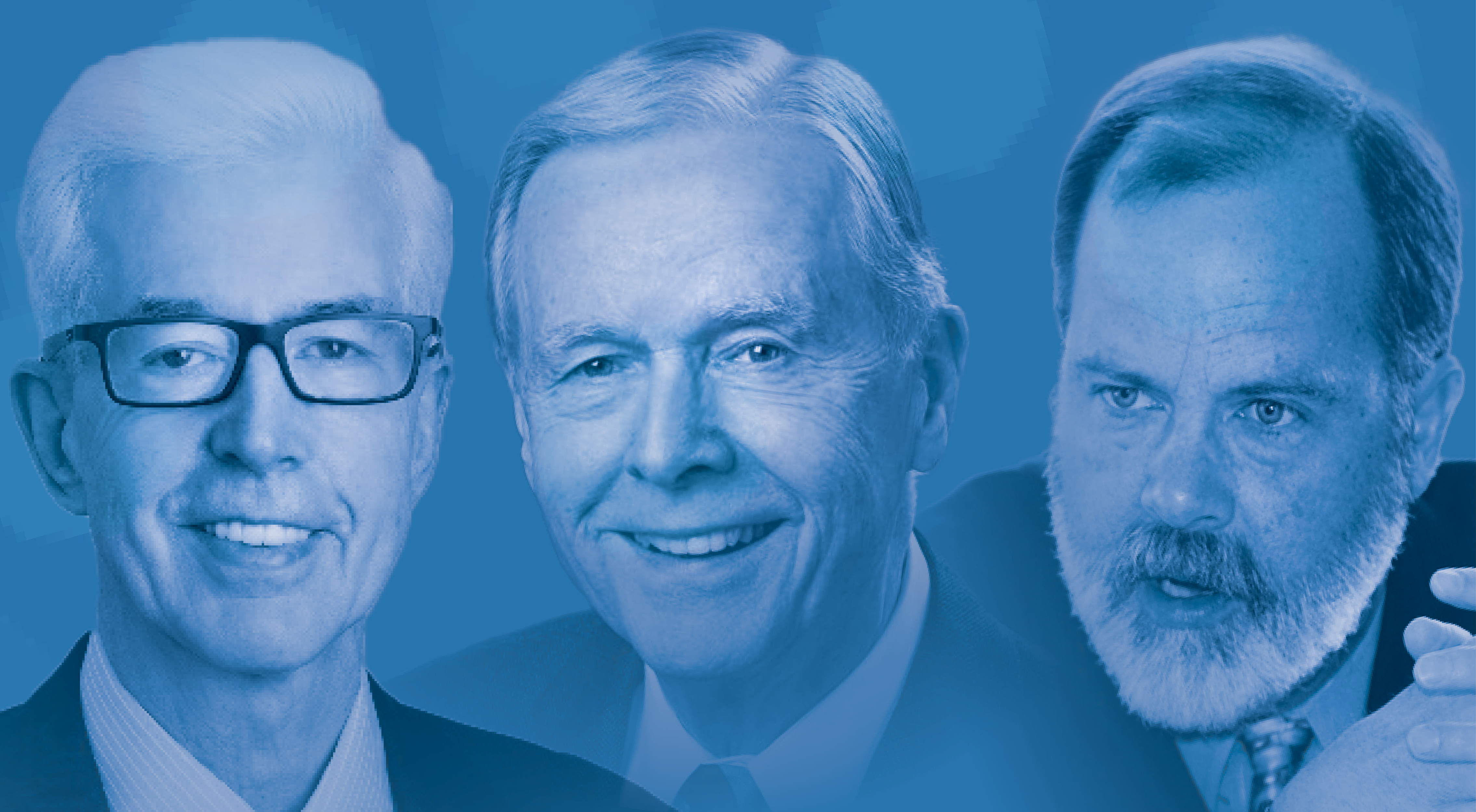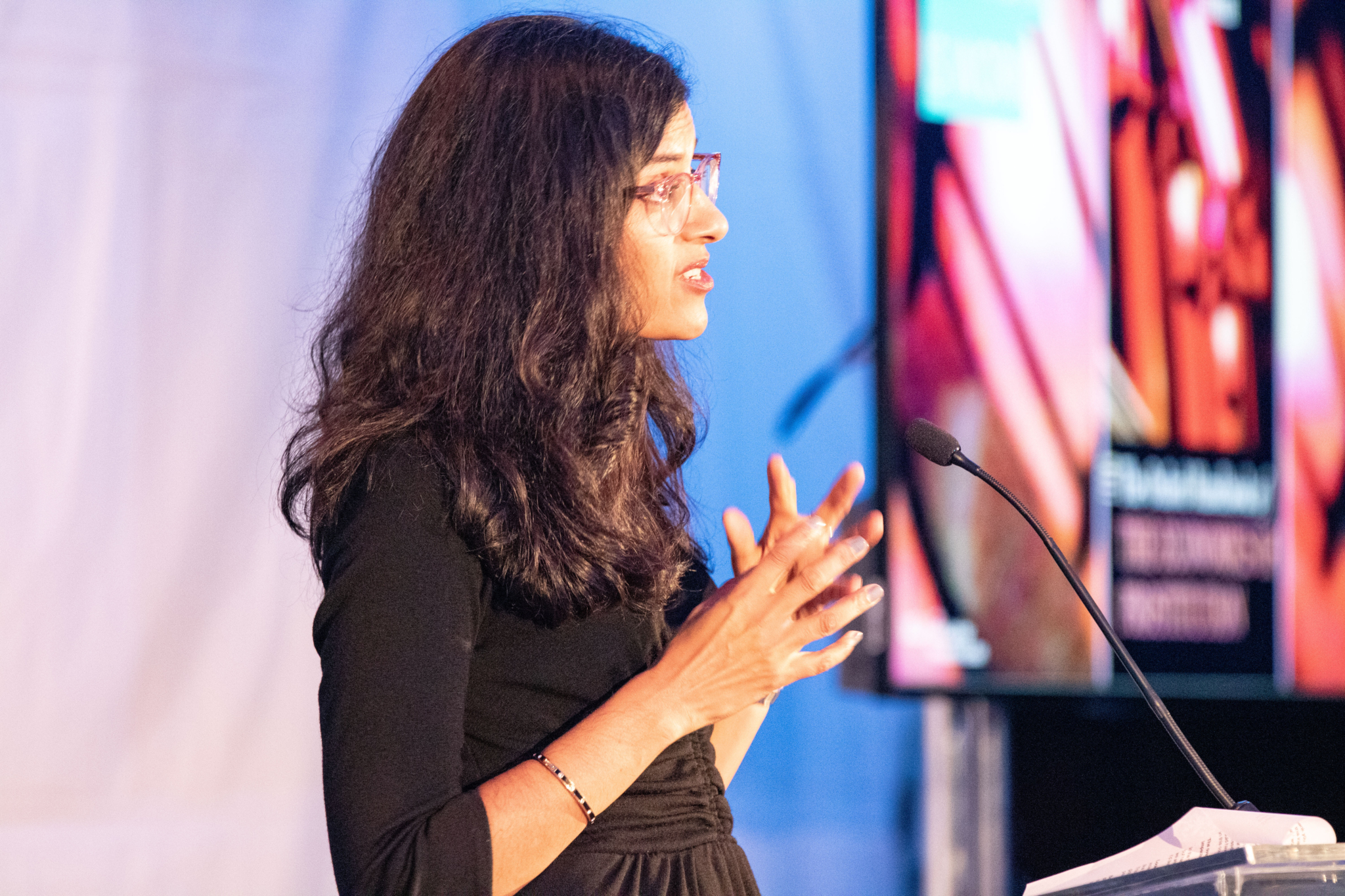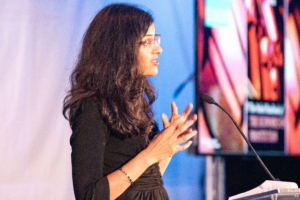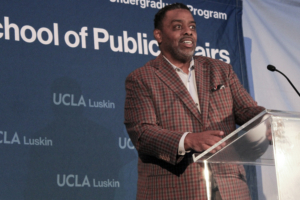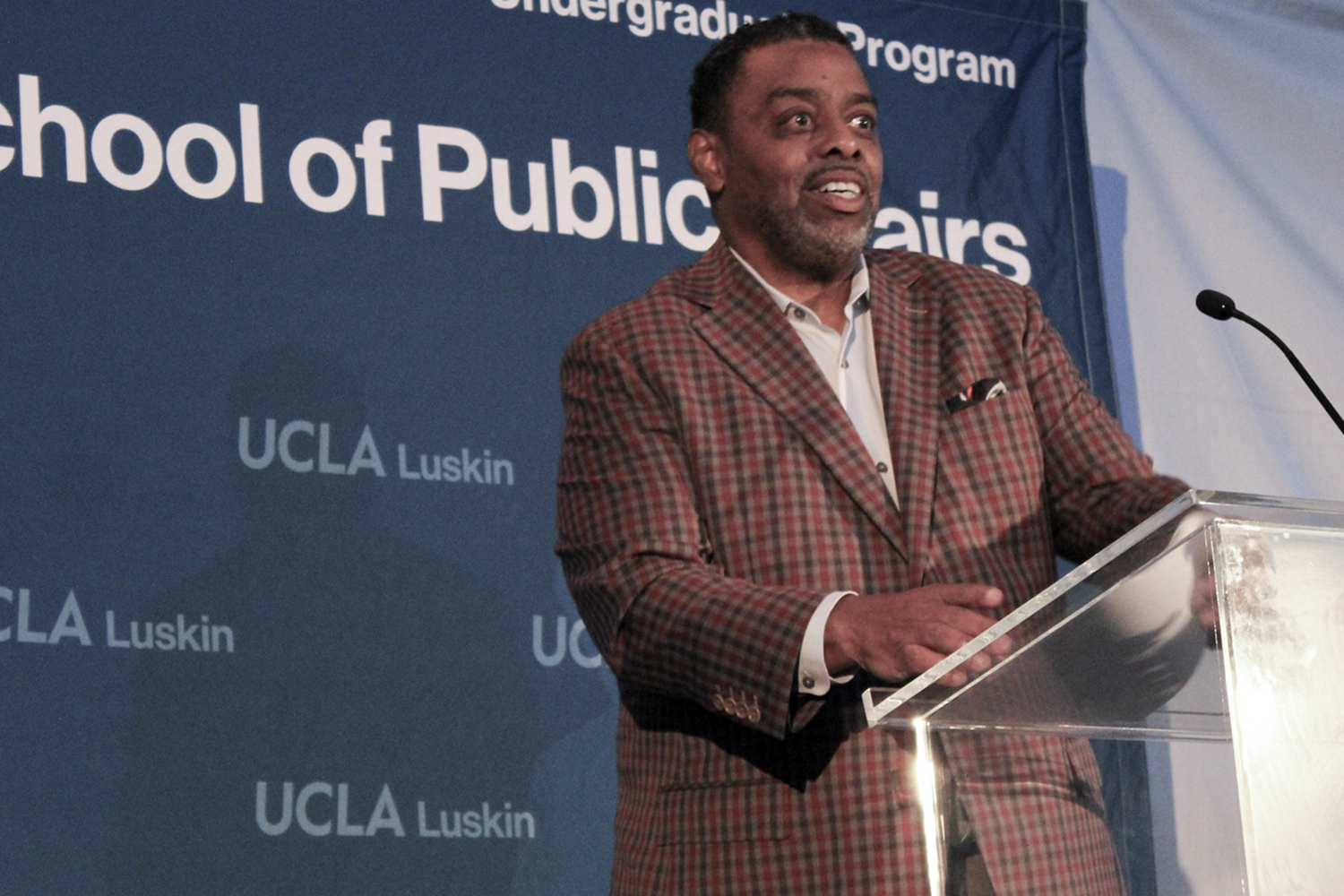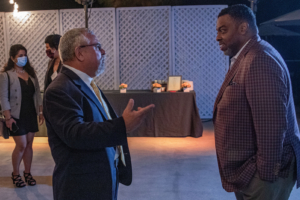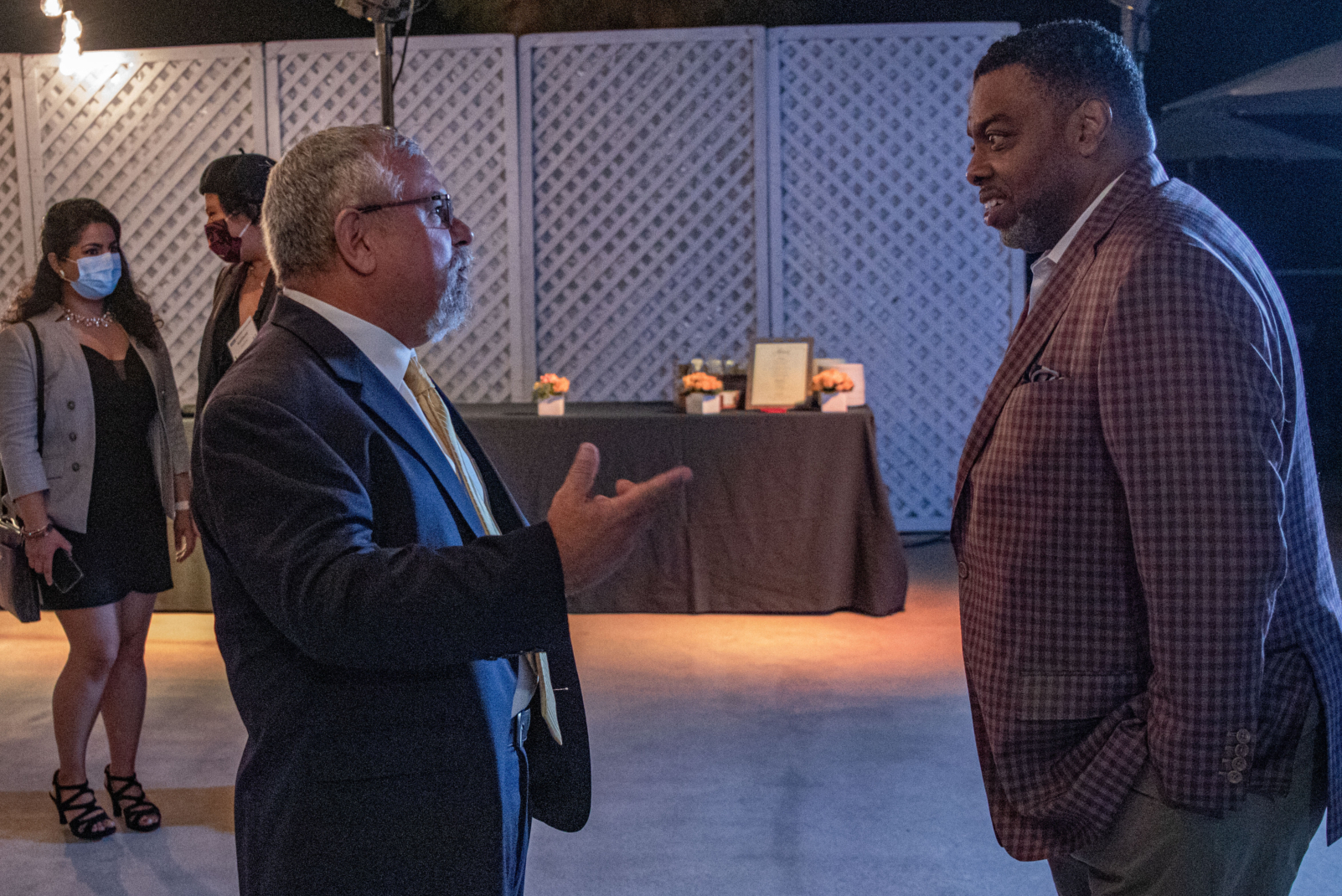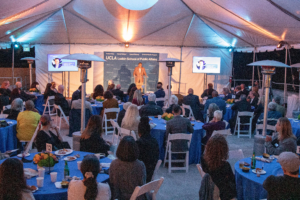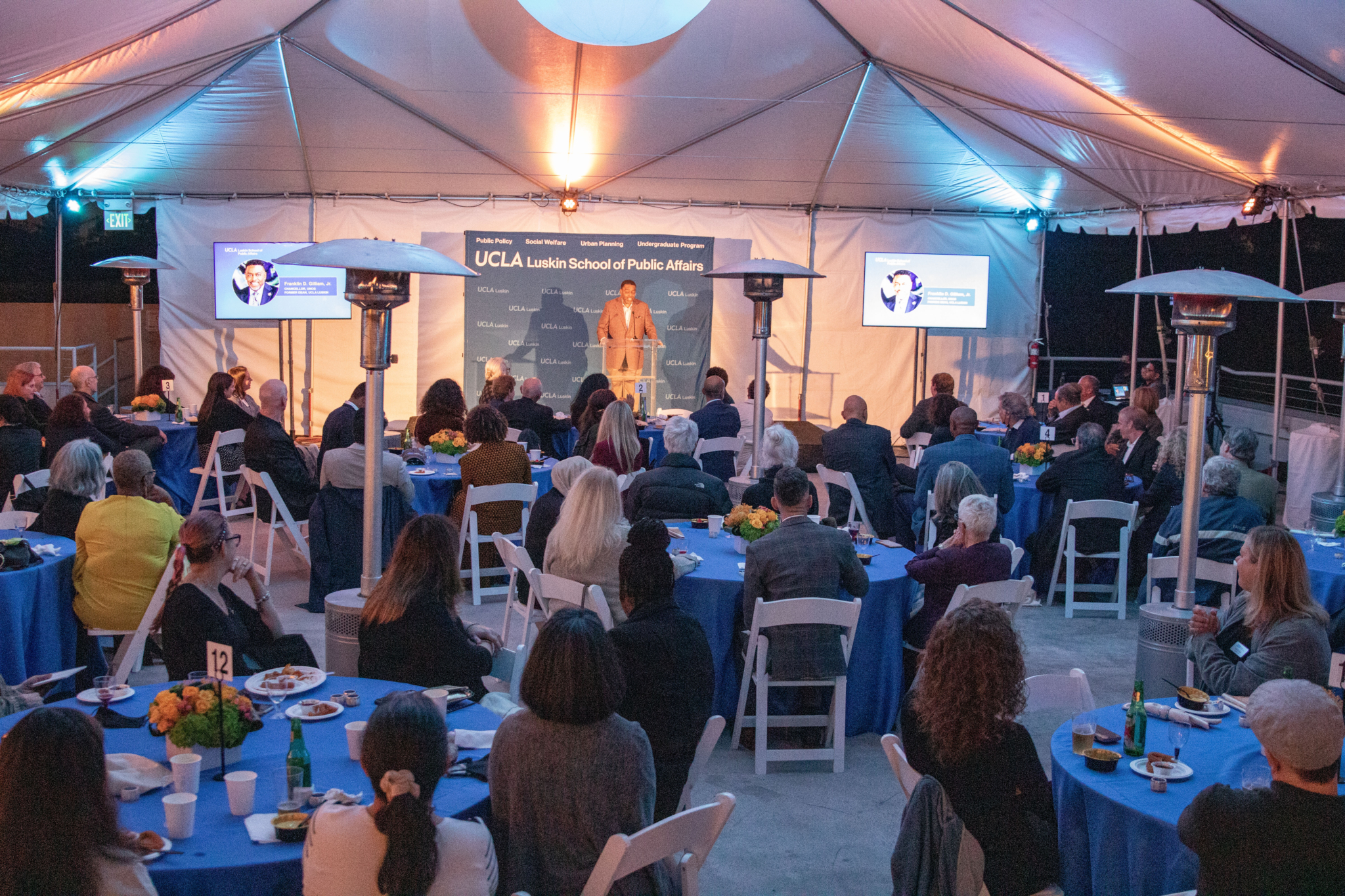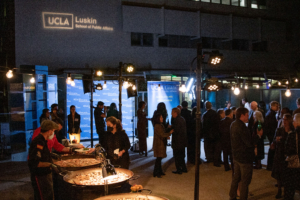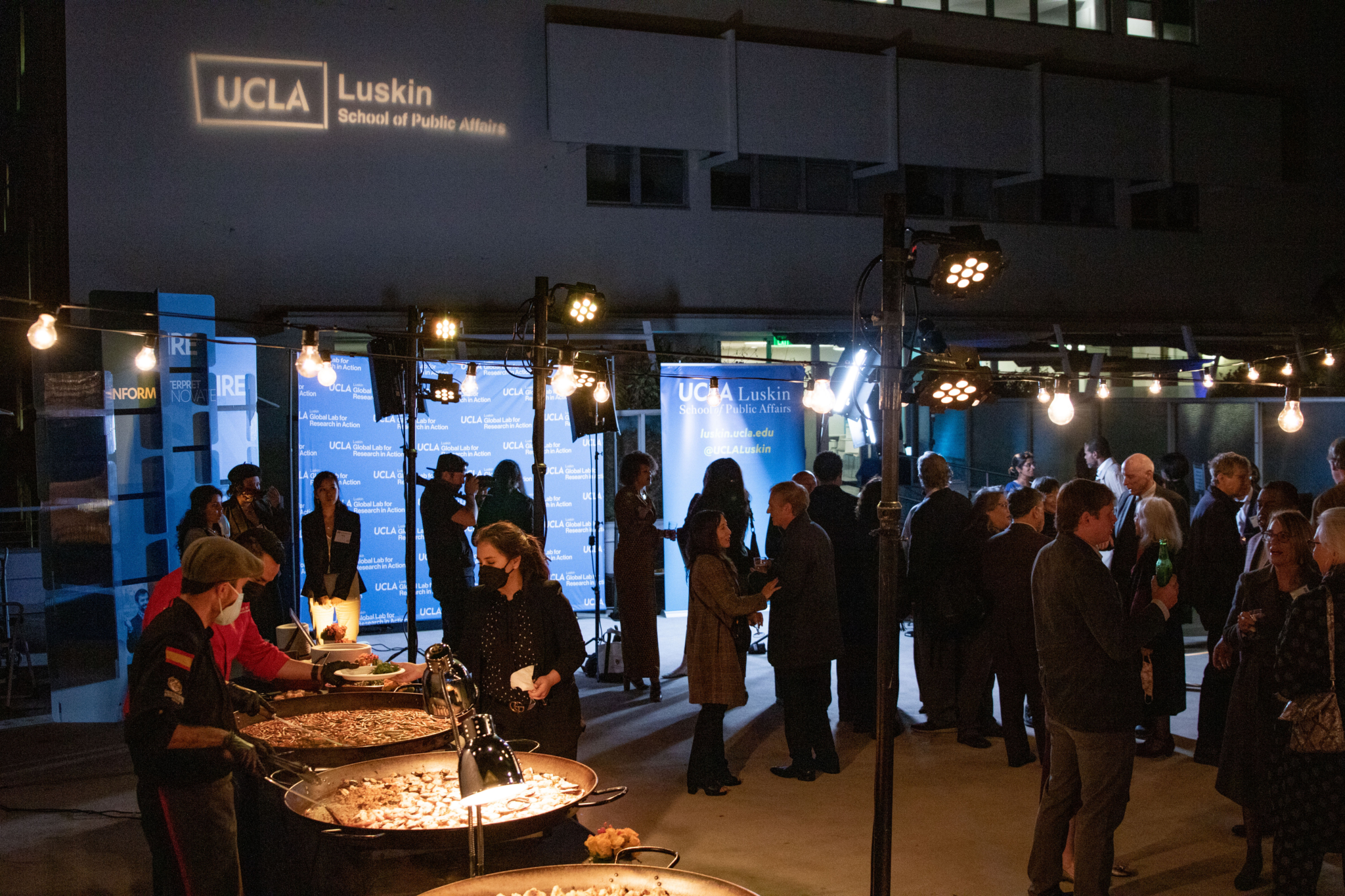A Worldly Perspective
Thinking beyond borders is an integral part of a UCLA education.
The commitment to international scholarship is even spelled out in the Luskin School’s strategic plan. It recognizes UCLA’s unique position as a public university situated “in the ‘world city’ of Los Angeles, a living laboratory for the far-reaching issues facing communities across the United States and around the world.”
Roughly one in five current faculty members at UCLA Luskin conduct research primarily with an international focus. Their scholarly contributions frequently appear in journals with a global orientation or get recognized in other ways.
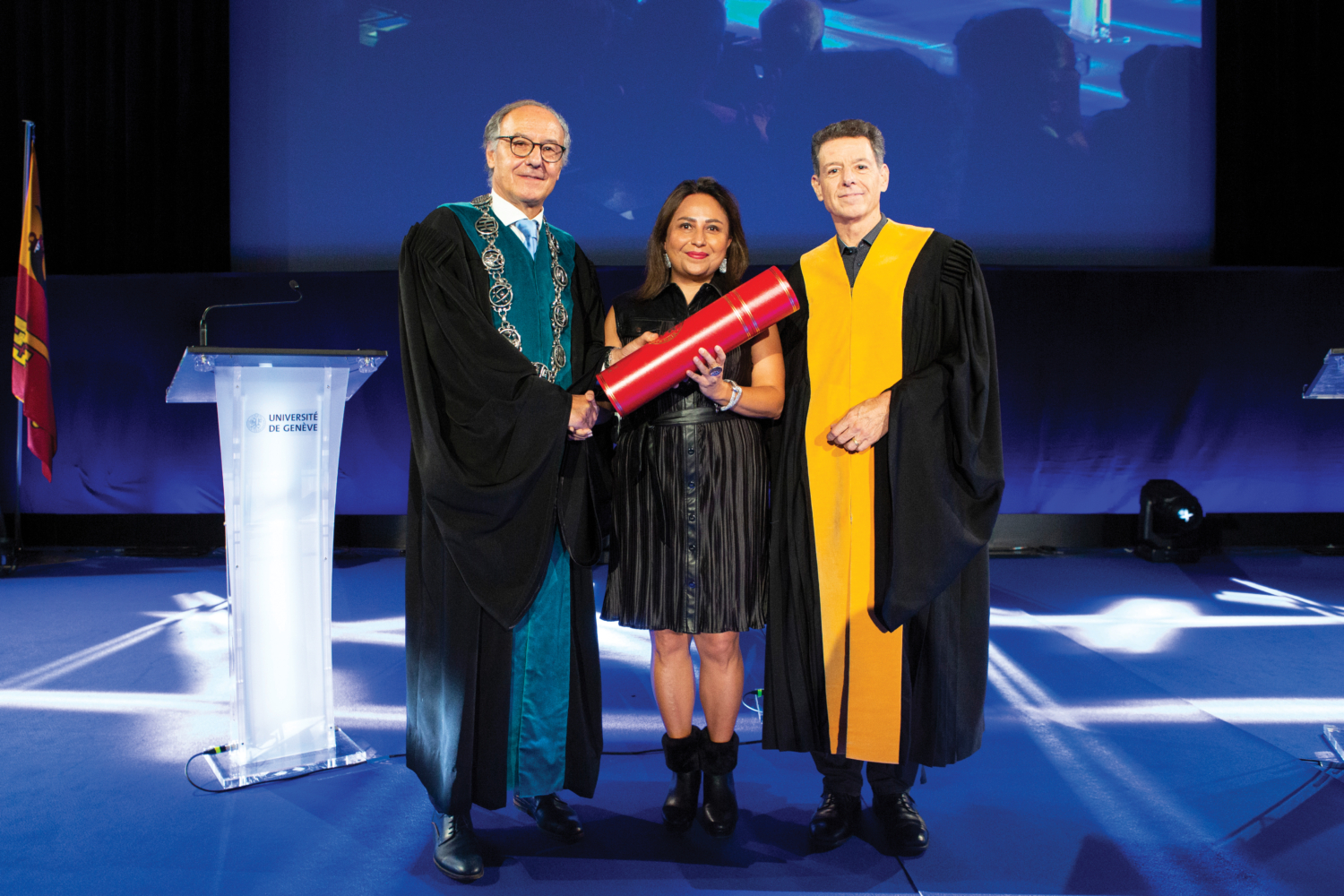
Professor Ananya Roy receives the Doctorat Honoris Causa (honorary doctorate) at the University of Geneva from Rector Yves Flückiger and Social Sciences Dean Pascal Sciarni.
For example, Ananya Roy, professor of urban planning and social welfare, traveled to Switzerland in October to receive a Doctorat Honoris Causa at the University of Geneva. An honorary doctorate is one of the highest academic honors one can receive.
“I didn’t have any ties to the University of Geneva,” Roy said after the ceremony, which was televised. “But as the faculty there reminded me, it will now always be my university.”
Some faculty efforts involve a pooling of resources. The Latin American Cities Initiative draws on Los Angeles’ ties to countries across the Americas to share knowledge about managing urban spaces. Directed by Paavo Monkkonen, professor of urban planning and public policy, the initiative known as Ciudades hosts seminars and conferences and conducts an international planning studio in Latin America that immerses students in real-world case studies.
And the Global Lab for Research in Action focuses on hard-to-reach populations around the world through a social justice lens. Manisha Shah of public policy leads the research, which seeks remedies for the health, education and economic needs of women and children.
A global focus is also found in many L.A.-based efforts, both new and ongoing.
In summer 2022, social welfare students and scholars hosted the International Summer University in Social Work, during which colleagues from around the world explored theories and practices that promote justice. More than 20 participants from four continents came to campus for a two-week exploration of topics such as racism, the wealth gap, gender bias and homelessness.
Last spring, the Luskin School hosted a virtual Global Mini-Summit as part of its signature Luskin Summit policy dialogue series. Discussions are underway to expand this concept into an ongoing series focused on international concerns.
Plus, numerous alumni now hold positions in foreign governments or work in agencies or businesses with an international mindset.
Several stories in this edition of Luskin Forum take a closer look at the ways UCLA Luskin is bringing a global perspective to issues of public concern.
